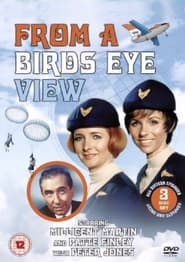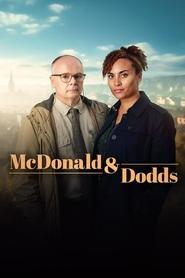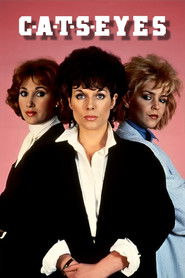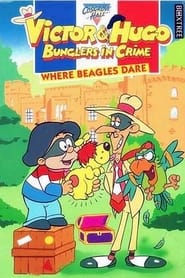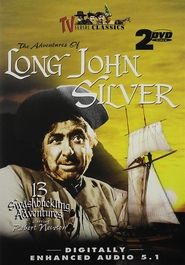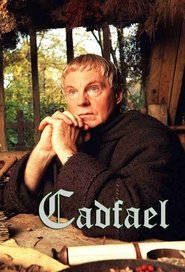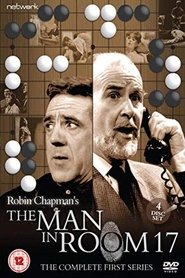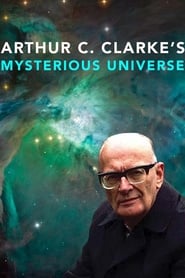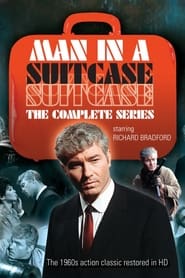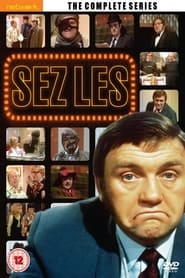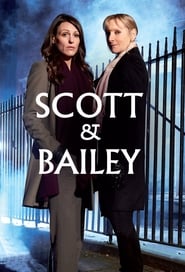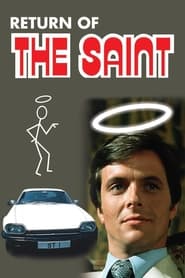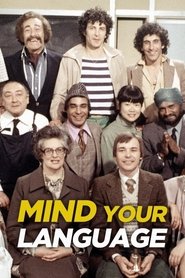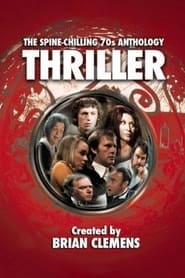Itv1 TV Series - Page 13
-
Peston
2018
Peston
2018
Join Robert Peston for a late-night political magazine show featuring big interviews with the country's leading politicians, topical guests, and the best politial gossip. -
Talking Telephone Numbers
1994
star 6.5Talking Telephone Numbers was a British game show that was produced by Celador and Carlton Television and aired on ITV from 28 February 1994 to 22 December 1997, hosted by Phillip Schofield and Emma Forbes, then later Claudia Winkleman, with Cash Peters appearing in filmed inserts. The programme featured five games, each designed to generate a number. These numbers were combined towards the end of the programme to form a five-digit code. Viewers with telephone numbers where the last 5 digits matched the code could then phone in to try to win a cash prize. -
From a Bird's Eye View
1970
star 5.5From a Bird's Eye View is a 1970 ATV and ITC Entertainment co-produced sitcom. In the United States it aired on NBC, which had originally ordered the series as an entry in the 1969-70 TV season but pushed it back to the 1970-71 season as a mid-season replacement. The series followed two International Airlines stewardesses, a scatterbrained Briton and a savvy American, as they flew the London-European routes. The series ran for 16 25-minute colour episodes. The series was not a big success in either the UK or the US, but ITC re-used the format for the Shirley MacLaine series Shirley's World. That show also flopped, but ran to one more episode than From a Bird's Eye View. -
McDonald & Dodds
2020
star 7.6Two detectives, DCI McDonald and DS Dodds, who seemingly have nothing in common, are thrown together and forge a rumbustious friendship and entertaining partnership. -
C.A.T.S. Eyes
1985
star 5.7C.A.T.S. Eyes is a British television series made by TVS for ITV between 1985 and 1987. -
The Rivals of Sherlock Holmes
1971
star 7.3Adaptations of mystery stories written by Sir Arthur Conan Doyle's contemporary rivals in the genre. -
Victor & Hugo, Bunglers in Crime
1991
star 8.5Victor and Hugo, Bunglers in Crime is an animated series made by Cosgrove Hall for Thames Television and screened on CITV from 6 September 1991 to 29 December 1992 and is a spin off from Count Duckula. The series centres on the exploits of two bumbling French criminals - the eponymous brothers of the title. Despite referencing the French author Victor Hugo in their names, neither brother was particularly intelligent. The plot of each episode dealt with Victor and Hugo and their English-based business "Naughtiness International" being hired by crime figures to steal something. Victor would come up with a "meticulous plan" to achieve this goal, which was routinely botched by Hugo. The episodes would traditionally end with the brothers imprisoned. -
The Adventures Of Long John Silver
1957
star 6.7A TV series about the Long John Silver character from Treasure Island. It was made in 1954 in colour in Australia for the American and British markets before the development of Australian television. Long John Silver is the proud captain of his own ship and his own crew. He and his buccaneer cruise around the Caribbean and often stay on the side of the English and fight the French and Spanish. After the long and dangerous adventures, he and his crew rest in the tavern of Miss Purity. This series aired in the United States first on Syndicated basis in 1956, but not on a regular basis and completely random as part of another show. Several episodes were edited together and shown as movies in the cinemas under the titles: Under The Black Flag and South Sea Pirates. After that it was sold to the ITV Network in the UK, and aired in 1957. In 1958 Australian ABC screened the series as part of Children's TV Club show. -
Cadfael
1994
star 7.3Brother Cadfael is a twelfth-century Anglo-Welsh monk. A retired crusader disappointed in love, and now a herbalist in charge of the gardens of Shrewsbury Abbey, Brother Cadfael is often called on to solve murders and other crimes in and around Shrewsbury, Shropshire, in the border country where England meets Wales. -
The Man In Room 17
1965
star 5.3The Man in Room 17 is a British television series which ran for two seasons in the mid-1960s, produced by the Northern ITV franchise, Granada Television. Key to the series' success was the involvement of writer/producer Robin Chapman. The show was set in Room 17 of the Department of Social Research, where former wartime agent-turned-criminologist Edwin Oldenshaw solved difficult police cases through theory and discussions with his assistants. The novelty of the series was that Oldenshaw and his colleagues never needed to leave their office in order to resolve cases, preferring to spend their time playing the Japanese board game of Go. They simply provided their prognosis and left the police to do the cleaning up. Different directors were often appointed to film the Room 17 and outside-world scenes independently, to maintain a sense of distance between the two worlds. -
Arthur C. Clarke's Mysterious Universe
1994
star 7Arthur C. Clarke's Mysterious Universe was a popular eighteen part television series looking at unexplained phenomena across the universe. It was first broadcast in the United Kingdom by independent television network ITV. It premiered on July 15, 1994. It was the sequel to Arthur C. Clarke's Mysterious World and Arthur C. Clarke's World of Strange Powers. The series is introduced by acclaimed science fiction writer Arthur C. Clarke in short sequences filmed at his home in Sri Lanka. However, individual episodes are narrated by Carol Vorderman. The series was produced by John Fairley and directed by Peter Jones, Michael Weigall and Charles Flynn. -
Four Feather Falls
1960
star 5.7Four Feather Falls was the third puppet TV show produced by Gerry Anderson for Granada Television. It was based on an idea by Barry Gray, who also wrote the show's music. The series was the first to use an early version of Anderson's Supermarionation puppetry. Thirty-nine 13-minute episodes were produced, broadcast by Granada from February until November 1960. The setting is the late 19th-century fictional Kansas town of Four Feather Falls, where the hero of the series, Tex Tucker, is sheriff. The four feathers of the title refers to four magical feathers given to Tex by the Indian chief Kalamakooya as a reward for saving his grandson: two allowed Tex's guns to swivel and fire without being touched whenever he was in danger, and two conferred the power of speech on Tex's horse and dog. Tex's speaking voice was provided by Nicholas Parsons, and his singing voice by Michael Holliday. The series has never been repeated on British television, but it was released on DVD in 2005. -
Man in a Suitcase
1967
star 7Accused of treason, a former U.S. intelligence officer based in London tries to clear his name, taking on freelance jobs around Europe as he searches for answers. -
Sez Les
1969
star 4.5Sez Les was a British comedy sketch show that starred Les Dawson, produced by Yorkshire Television, airing on ITV from 1969 to 1976. Roy Barraclough also joined from series four and would go on to become Dawson's most recognisable sidekick. The two most notably appeared together in drag as characters Cissie and Ada. John Cleese, who had quit the Monty Python team's television series, was also present from 1974 in two complete seasons. Other cast members included Norman Chappell, Brian Glover, Brian Murphy and Kathy Staff. Music was provided by Syd Lawrence and his orchestra. -
Scott & Bailey
2011
star 7.4D.C. Rachel Bailey and D.C. Janet Scott have a robust and engaging friendship which enables them to draw upon each other’s strengths and investigate murders for the Manchester Metropolitan Police. -
Runway
1987
star 6Runway was a daytime quiz programme that was produced by Action Time in association with Granada and ran on the ITV network from 12 October 1987 until 19 February 1993. It was originally hosted by Chris Serle in 1987, then Richard Madeley hosted from 1988 until it ended in 1993. -
Beat the Chasers
2020
star 7.6All five of the Chasers appear together to take on all comers and form the best quiz team in the world. As they visit different UK cities, contestants from all over the county face head-to-head challenges with not one, but all the Chasers. -
Return of the Saint
1978
star 7Follow the swashbuckling exploits of Simon Templar, a modern-day Robin Hood of sorts. -
Mind Your Language
1977
star 8.2Jeremy Brown, a language teacher, tries to make a living by teaching English to immigrants. With pupils from India, France, China, and many other countries, his lessons do not always go as planned. -
Thriller
1973
star 6.6Thriller is a British television series, originally broadcast in the UK from 1973 to 1976. It is an anthology series: each episode has a self-contained story and its own cast. As the title suggests, each story is a thriller of some variety, from tales of the supernatural to down-to-earth whodunits.


